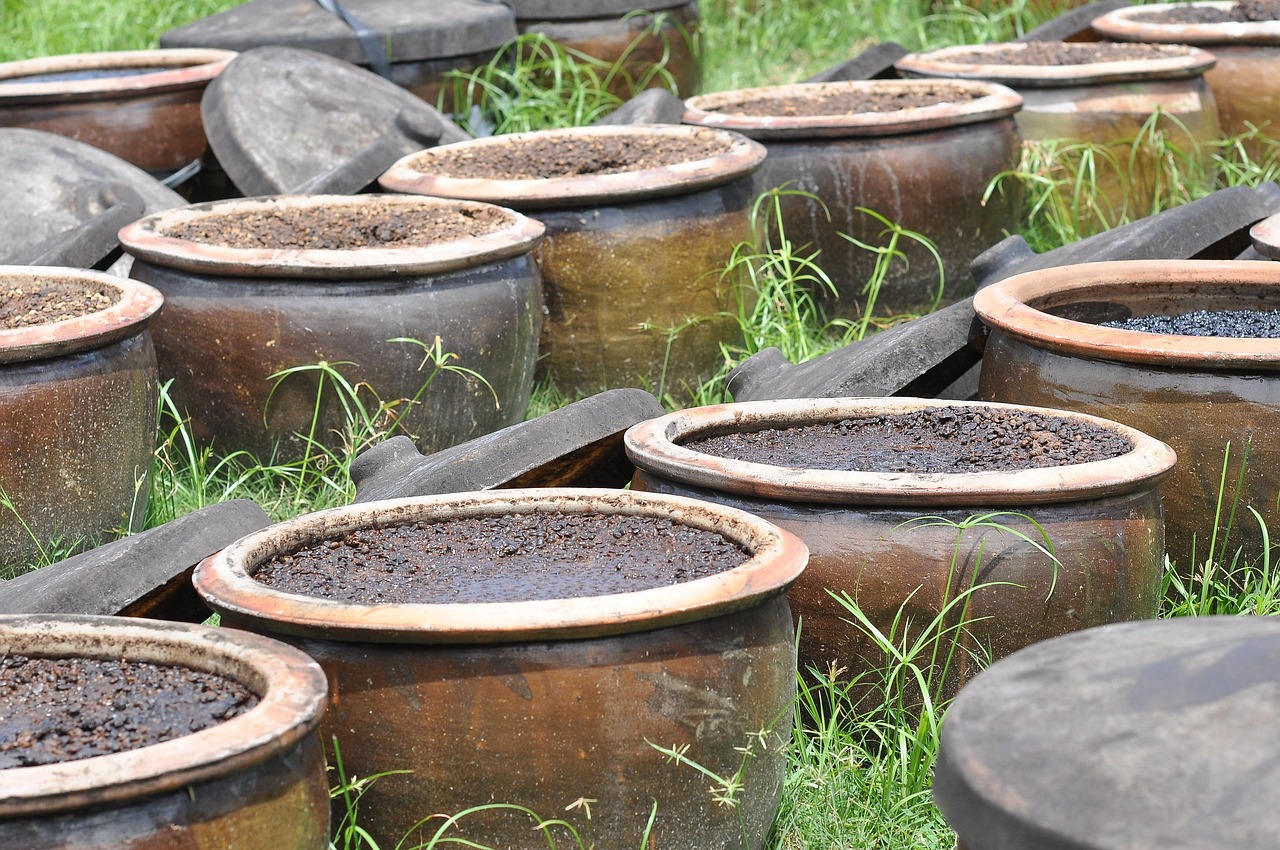Fermentation is a biochemical process that has accompanied humanity for millennia. It served not only to preserve food but also played a key role in the development of civilizations, nutrition, and even culture. From the beer of the Sumerians to the sourdough bread of the Egyptians, fermented foods have been essential to our species’ evolution.
In this article, we will explore how fermentation has shaped the history of humanity and why it remains a fundamental technique today.
The Origins of Fermentation: An Accidental Discovery
It is believed that fermentation was discovered by accident. In the early agricultural settlements, humans began storing food and noticed how some transformed without spoiling. This led to the creation of products like beer, wine, and fermented bread.
The earliest records of fermentation come from Mesopotamia and Egypt. Sumerian clay tablets from over 6,000 years ago have been found referencing beer production. For the Egyptians, fermentation was also key in bread making, allowing the production of a more nutritious and digestible food.
Fermentation and Survival: How It Helped Ancient Civilizations
One of the greatest benefits of fermentation was food preservation. Before refrigeration, ancient populations relied on techniques like pickling and lactic fermentation to extend the shelf life of food.
In cold climates like Northern Europe, fermentation allowed the Germanic and Slavic peoples to store vegetables for the winter, such as sauerkraut or pickled foods. In Asia, miso and soy sauce became staples, providing flavor and nutrients during times of scarcity.
Fermentation and Culture: Its Impact on Ancient Societies
Fermentation not only served to nourish civilizations but also influenced their social and religious practices.
- In many cultures, fermented alcohol played a central role in rituals. For example, the Greeks and Romans worshipped wine during festivals dedicated to Dionysus and Bacchus.
- In Asia, fermented beverages like kombucha and sake became symbols of tradition and spirituality.
- In pre-Columbian America, fermented beverages like chicha and pulque were essential in religious ceremonies.
Fermentation and Science: The Discovery of Microorganisms
Until the 19th century, fermentation remained a mystery. It was known to transform food, but the underlying mechanism was unclear. It was scientist Louis Pasteur who, in the 1850s, demonstrated that fermentation was a biological process caused by microorganisms.
Thanks to this discovery, fermentation methods were improved, and new applications in the food and medical industries were developed, such as the production of antibiotics and probiotics.
Fermentation in the Modern World
Today, fermentation is still essential. It has been revalued not only for its culinary impact but also for its health and sustainability benefits.
- Health: Foods like kefir, yogurt, and kimchi are rich in probiotics, which are essential for gut health.
- Sustainability: Fermentation helps to better utilize food and reduce waste.
- Gastronomic Culture: Fine dining and modern gastronomy are rediscovering fermentation to develop complex flavors.

Conclusion: A Legacy That Endures
Fermentation has been a crucial tool in the history of humanity, shaping our diets, cultures, and even our health. From ancient civilizations to modern kitchens, its impact remains strong.
While we now have advanced technology for food preservation, fermentation continues to be a valued technique—not only for its unique flavor but also for its health benefits and cultural heritage.
What are your thoughts on the importance of fermentation in history? Have you ever made fermented foods at home?
